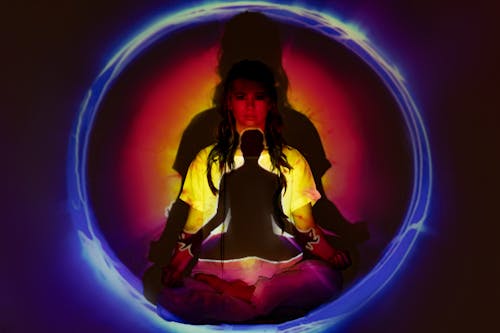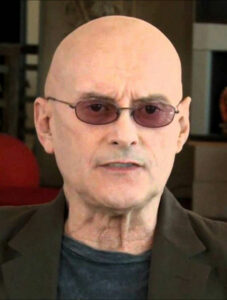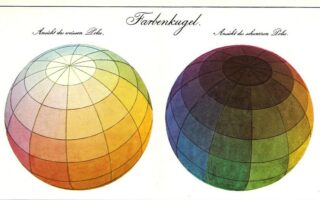Are we more than the ego?
Author: Ken Wilber
In this interview, integral philosopher Ken Wilber shares his understanding of one of the most common themes of spiritual liberation paths: the experience of awakening and the realization of the non-dual, all-connected Self. At the same time, Wilber integrates the levels of consciousness that shape the subject’s perspective on the world and have not yet been described by any spiritual tradition. In his eyes, however, waking up and growing up must go hand in hand in order to create a peaceful and integral society.
AWAKENING IN SOCIETIES
Question: We are now at a point in evolution where more people are remembering who we really are: We are not just an individual or an ego. There is something deeper that defines us. So the question arises, what is the nature of the true self or absolute consciousness as opposed to the relative consciousness of the ego?
Wilber: This is one of the most common themes of the great liberation paths or paths of awakening. In this, the fundamental discovery worldwide is that human beings have at least two different identities. One is a fragmented, suffering, alienated self. And the other is our true self, the awakened self that we truly and really are.
In most of the great meditative traditions, practices have been developed to help us release our awareness from identification with the small, alienated, limited sense of self to discover our true self, which is one with the Source of Being. This awakening fills us with deep meaning, happiness and profound joy.
So if someone asks you: Who are you? Then you could say, for example, my name is so-and-so, I am so-and-so many years old, I am so tall, I weigh so much. I have a university degree in this subject, I work in this profession, and I earn this much money. I don’t have a partner, etc. So you are describing what you think your self is.

BEYOND IDENTIFICATIONS
With this list, and in relation to the self you have described, you will notice that these are objects that we can see. Whenever you look within and describe yourself, you are looking at your inner self as an object that you can see, an object of awareness. And then you describe what it is and call it: I.
The wisdom traditions indicate that these are all objects that we can see. But none of these objects is the observer of these objects. For who is actually seeing all this when you describe the things that pass through your awareness as objects?
Who is the true subject? Who is the true awareness, the real self?
So we have inadvertently found our true self: the pure witness, the true seeing. We have naturally recognized ourselves with something that cannot be seen.
Just about every wisdom tradition diagnoses humanity as suffering from a case of false identity. These traditions take on the task of explaining us: So, what you think is your self is not your self. This whole list of things you use to describe yourself is exactly what you are not. That’s how we get to the true self, the ability to just unbiasedly witness everything that appears.
This witness is a true subject. He is the true self.
The Zen master Shibayama calls it “Absolute Subjectivity.” In Sanskrit it includes the states from Purusha to Turya, the Fourth State, as this pure witnessing, this pure awareness is called. So the witness is the awareness itself, not one of the contents of consciousness.
THE EXPERIENCE OF AWAKENING – SATORI
God is not love. God is not light. God is not compassion. God is not worry. God is not happy. God is not all-encompassing. God is not omnipresent. God or any other name we may use is not appropriate for absolute reality.
The only way to find out what God is is to have a satori experience, an experience of awakening.
We can only know absolute reality by adopting a practice that helps us transcend the ordinary thinking mind and awaken to absolute non-dual awareness.
When one asks, “Does God exist?” one can answer yes or no. According to someone like Nagarjuna, one of the founders of Mahayana Buddhism, both statements are false. They are meaningless. You can answer yes or no to this question, but still you don’t know what God is. It just doesn’t make sense. To really answer the question, you have to engage in some form of meditative practice that allows you to awaken to this non-dual awareness.
When you awaken, when you experience satori, you know the answer. You will be immediately in the answer to that question. That is called awakening.
Until that happens, everything you say is wrong.

NIRVANA AND ENLIGHTENMENT
Question: So there is no point in trying to escape from the world?
Wilber: For the early Theravada Buddhists, it was clear that samsara is a place of terror. They wanted to get out of samsara into nirvana. Nirvana is a state of non-manifest, formless absorption. In this state we feel no pain, no desires, no ego, no fear. It is nothingness, a state without suffering. For 600 to 800 years this was the goal of the original Buddhism and also of some Western traditions. We also see this goal in Plato’s allegory of the cave: Inside the cave are all the shadows and outside the cave is the light. Therefore, we should escape from the cave as soon as possible. The cave was a sorrowful place, the goal was the light.
Then Nagarjuna in the East and Plotinus in the West appear, explaining that although there is this state of nirvana, this is not the highest realization, because it continues to be very dualistic, because in it nirvana is completely separate from samsara. Nagarjuna and Plotinus realized that there is a higher state that unifies both, there is a wholeness that encompasses both. Therefore, we can be in a state of nirvana or radical emptiness and at the same time the entire manifest world appears, and we are one with both. This is the true enlightenment.
This caused a revolution in the East, because non-dual forms of spirituality emerged, from which traditions like Tantra eventually emerged. For in the original puritanical forms of religions, SPIRIT and sex were radically separate. In Tantra, sex was seen as a direct path to the SPIRIT. So the more sex you have, the more likely you are to find the SPIRIT, because the two are not separate.
The text “Tracing the Primordial Ground of Being” is an original excerpt from the film interview:
WAKING UP GROWING UP with Ken Wilber.
Interview and direction: Ramon Pachernegg
Production: WAYS TO SELF
Link to the film interview: wegezumselbst.at/wakingup
 About the author
About the author
Ken Wilber (b. 1949) turned his back on an academic career to explore philosophy, psychology, the Eastern and Western wisdom teachings, and other disciplines of the sciences of the mind in intensive private study, and devoted himself to the practice of Zen and Tibetan Buddhism. Today he is considered the most important representative of transpersonal psychology and is one of the most important theorists of an integral worldview.
This article was originally pubblished on the German Homepage of Tattva Viveka: Dem Urgrund des Seins auf der Spur




